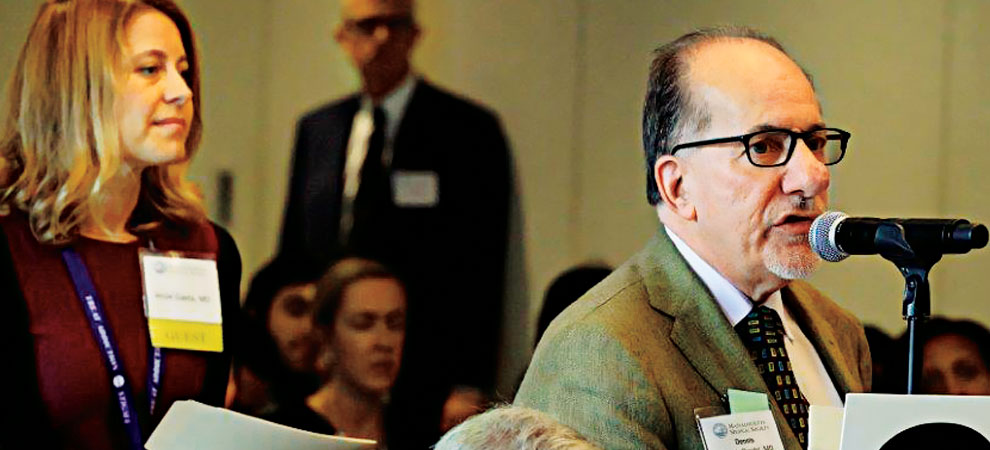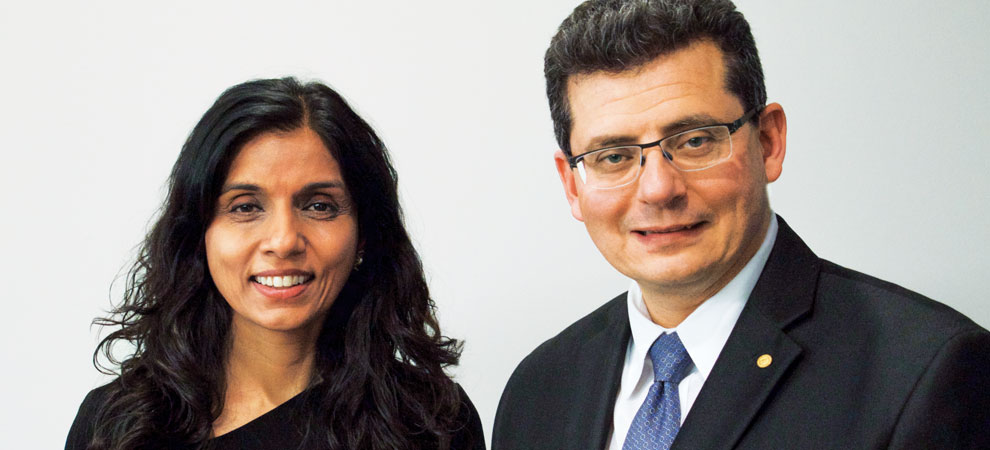By Sarah Ruth Bates, MBE, MMS Government Relations and Research Analyst
Three MMS member physicians have been appointed to represent the Medical Society on new commissions established by the CARE Act. The commissioners’ task is to review policy solutions to the opioid crisis. Vital Signs spoke to them about their respective goals.
Medication Treatment for Opioid Use Disorder
“It was not that long ago that I did not fully comprehend the nature of addiction diseases such as opioid use disorder, and I think that many physicians would say the same thing. It is now clear that we are dealing with a chronic and relapsing disease that can be treated once we examine the evidence of what works. All of us in our practices have individuals who suffer from opioid use disorder.
“The basic charge of the commission is to study and make recommendations about the use of medication-assisted treatment (MAT). The Medical Society’s opioid task force has identified this as one of our major areas of effort.”
— Dennis M. Dimitri, MD; family medicine practitioner, UMass Memorial Health Care; past president, MMS; chair, MMS Task Force on Opioid Therapy and Physician Communication
Harm Reduction Including Supervised Injection Facilities
“The fact that the state is taking a deeper look at the possibility of supervised injection facilities (SIFs) is a testament to the MMS’s advocacy on this issue. The Harm Reduction Commission offers us a chance to have more dialogue about this critical part of our state’s response to the epidemic.
“I am also thankful for Secretary Sudders’ invitation to present findings to the Commission on lessons learned from the Supportive Place for Observation and Treatment (SPOT), a Boston Healthcare for the Homeless program that is saving lives by helping individuals reduce harm associated with the use of substances and gain access to treatment on demand. That’s a good indication of the comprehensive approach the Commission will take to bring lifesaving, harm reduction solutions to Massachusetts.”
— Jessie M. Gaeta, MD; chief medical officer, Boston Health Care for the Homeless Program; assistant professor of medicine at Boston University School of Medicine
“The work that the Society has done to move the issue of harm reduction and SIFs forward in Massachusetts is groundbreaking. We are so pleased that our report on SIFs is being used as a resource by the commission and that many of our policy recommendations are being considered on the path forward to save lives.”
— Therese Fitzgerald, PhD, MSW; director, MMS Health Care Research, Analytics, and Insights; Commission staff liaison

The testimony of Dennis M. Dimitri, MD, and Jessie M. Gaeta, MD, has helped steer MMS policy on substance use. Photo by Doug Bradshaw.
Section 35: Involuntary Commitment on the Basis of Alcohol or Substance Use Disorder
“Civil commitment and compulsory treatment is an important policy consideration for our sickest patients. This commission is debating many of the same issues that have been discussed at our House of Delegates. Is there a role for an additional civil commitment pathway that avoids courts altogether and places decision-making authority in the hands of physicians? What are the relative outcomes for patients receiving involuntary treatment versus those electing to receive this care?
“This commission includes many important stakeholder groups we’ve long partnered with, including Secretary Sudders, Commissioner Bharel, several physician colleagues, as well as members of the courts, law enforcement, and family groups. I look forward to working with them to fulfill our legislative charge.”
— Alain A. Chaoui, MD; family medicine practitioner, Congenial Healthcare; president, MMS

MMS President Alain A. Chaoui, MD, with Public Health Commissioner Monica Bharel, MD, MPH, a longstanding partner of the Society in the effort to reduce overdose deaths. Photo by Josh Rosenfeld.
